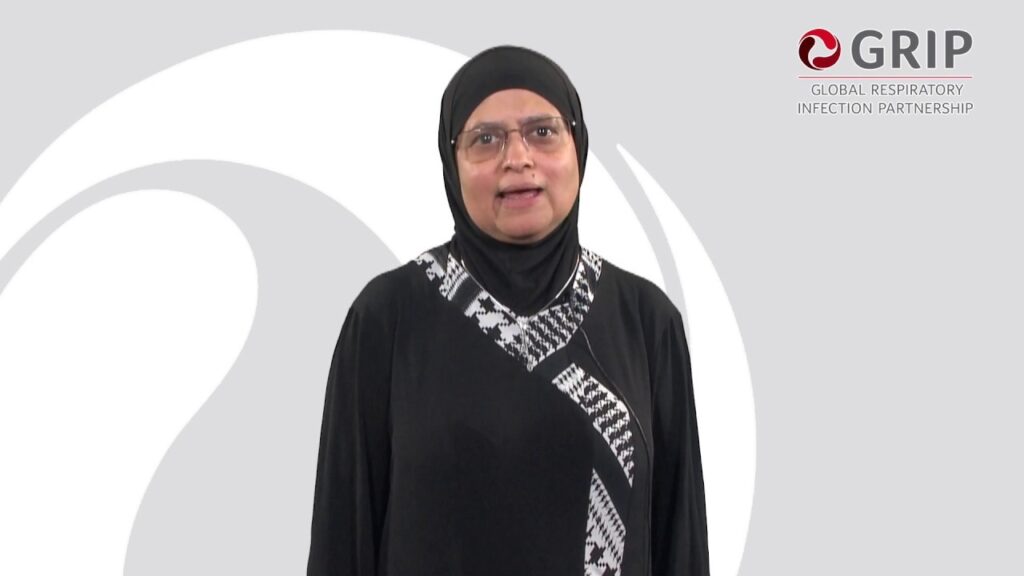
By Nabeelah Shaikh
Professor Sabiha Essack, a trailblazer in the field of antimicrobial resistance (AMR), has been awarded the esteemed Christiana Figueres Policy to Practice Award for her exceptional contributions to both scientific research and policy.
This prestigious recognition, presented by Applied Microbiology International (AMI) as part of their Horizon Awards, celebrates individuals who have excelled in translating scientific discoveries into actionable, real-world solutions.
The Christiana Figueres Policy to Practice Award is named in honour of Christiana Figueres, a renowned figure in global climate action, and it recognises individuals whose work bridges the gap between science and policy.
As the South African Research Chair (SARChI) in Antibiotic Resistance and One Health at the University of KwaZulu-Natal (UKZN) and an Honorary Professor of Pharmacy at the University of Jordan, Essack has played a pivotal role in advancing both scientific understanding and practical solutions for AMR.
Dr Lucy Harper, Director of AMI, expressed her delight at presenting the award to Essack.
“We are so delighted to be able to present this well-deserved award to Dr Essack in recognition of all the vital work that she has carried out to address the challenges of antimicrobial resistance,” said Harper.
Essacks’ innovative research, grounded in the One Health framework, which acknowledges the interconnectedness of human, animal, and environmental health, has been instrumental in developing strategies to prevent and contain the spread of resistant infections.
Essacks’ research delves into key areas such as infection prevention and control, biosecurity, and the molecular epidemiology of pathogens.
Her focus on using whole genome sequencing and bioinformatics to understand the genetic evolution of resistant bacteria has led to breakthroughs that inform policy and health strategies worldwide. Professor Essacks’ influence extends well beyond the laboratory and classroom. Throughout her illustrious career, she has played significant advisory roles on international platforms aimed at combating AMR. She is currently co-chair of the Quadripartite Technical Group on Antimicrobial Resistance and Use Integrated Surveillance (QTG-AIS) and serves as a Senior Implementation Research Advisor at the International Centre for Antimicrobial Resistance Solutions (ICARS) in Denmark.
She is also a member of the WHO Strategic and Technical Advisory Group for AMR (STAG-AMR) and the Scientific Advisory Board for the Joint Programming Initiative on AMR (JPIAMR), among many other international roles. These positions give her a unique opportunity to shape global policy and advocate for urgent action against AMR at the highest levels.
Essack’s ability to translate complex scientific data into clear, actionable policy recommendations has made her a highly respected figure in the global fight against AMR.
In a statement, the University of KwaZulu-Natal says her contributions are not only evident in her research but also in her leadership of several initiatives aimed at strengthening health systems and policy frameworks, particularly in low-and-middle-income countries.
“A strong advocate for the development of African expertise in AMR, Essack has been instrumental in mentoring a new generation of African researchers. Through her supervision of Masters and PhD students from across the African continent, she has cultivated a network of experts equipped with the skills to tackle AMR in their home countries. Her mentorship includes students from countries such as Cameroon, Ghana, Lesotho, Nigeria, and Uganda, contributing to a vital pool of knowledge and research capacity that is essential for addressing AMR in Africa,” the statement read.
In her career, Essack has secured research funding from some of the most prestigious global organisations, including the Wellcome Trust, the World Health Organisation, and the South African Medical Research Council. These funds have supported critical research into antimicrobial stewardship, infection prevention, and control, as well as the development of evidence-based strategies to mitigate the rise of resistant pathogens.
One of Professor Essacks’ key strengths is her ability to take research findings and translate them into practical, actionable policies. Her work has helped shape national and international guidelines for the prevention and control of AMR. She has advised governments and international organizations on strategies for antimicrobial stewardship, infection control, and the reduction of antibiotic misuse in both human and veterinary medicine.
Her policy contributions are particularly significant in the context of the African continent, where AMR poses an urgent threat to public health systems.
Essack has tirelessly advocated for stronger resource mobilisation and capacity building to combat AMR in resource-constrained settings. This includes addressing the barriers to the effective implementation of antimicrobial stewardship programs and improving access to quality healthcare, which are crucial to addressing the AMR crisis in low- and middle-income countries.











